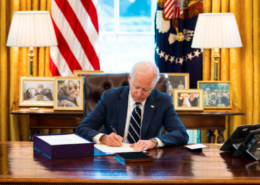Problem
Currently, many small businesses and historically underutilized businesses struggle to gain access to capital and small business loans. While Texas, like many other states, has recently legalized intrastate online crowdfunding to let businesses raise capital in exchange for equity or debt, experience in other states indicates that established small businesses—especially those in underdeveloped areas—struggle to attract investors and gain the financial and technical expertise necessary to fully utilize crowdfunding to raise capital.
Solution
Representative Eric Johnson has authored legislation to establish more flexible crowdfunding regulation requirements for a specific class of small business development entities that serve historically underfunded businesses. By allowing these businesses to leverage crowdfunding through less intrusive requirements, they can maximize their impact on small businesses and boost the economic impact around Texas.
How to steal this idea:
Learn more about Representative Johnson’s efforts in this article on his crowdfunding bill: https://www.bizjournals.com/dallas/print-edition/2015/02/27/bill-would-tweak-crowdfunding-rules-for-nonprofits.html
Read the legislation he sponsored in Texas: House Bill 1629
In the face of federal inaction, many states are already taking steps to facilitate equity crowdfunding within state lines by exempting from securities laws corporations that use crowdfunding to raise capital. To date, twenty-two states and the District of Columbia have enacted rules to allow intrastate crowdfunding.
In Wisconsin, these intrastate crowdfunding rules made it possible for a small business to establish a crowdfunding portal to raise $67,000 in growth capital from just over 50 individuals.
Texas can expect to see similar opportunities because we have similar regulations already in place. However, our solution is to go one step further to increase access to capital from crowdfunding by removing barriers to this tool for the small businesses that would otherwise not be able to take advantage of it, especially those in under-developed areas.
For more information on how other states are starting crowdfunding legislation, visit https://www.nasaa.org/industry-resources/corporation-finance/instrastate-crowdfunding-resource-center/
Visit and share the gallery of NewDEAL Challenge winners at governing.com/newdeal.







